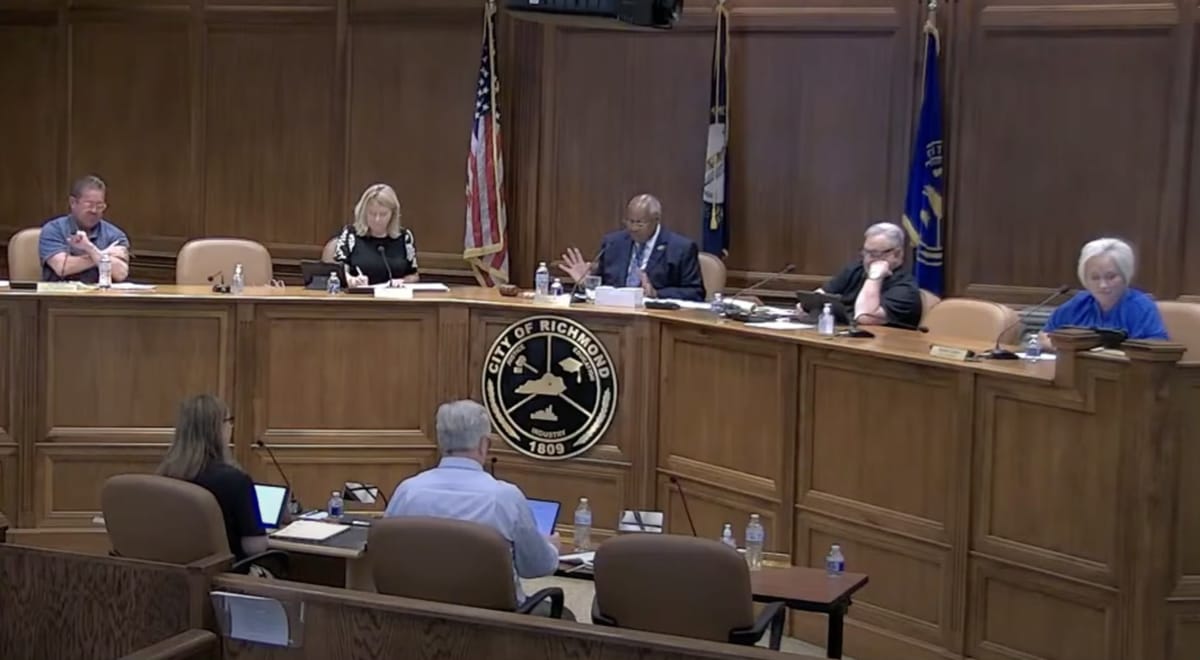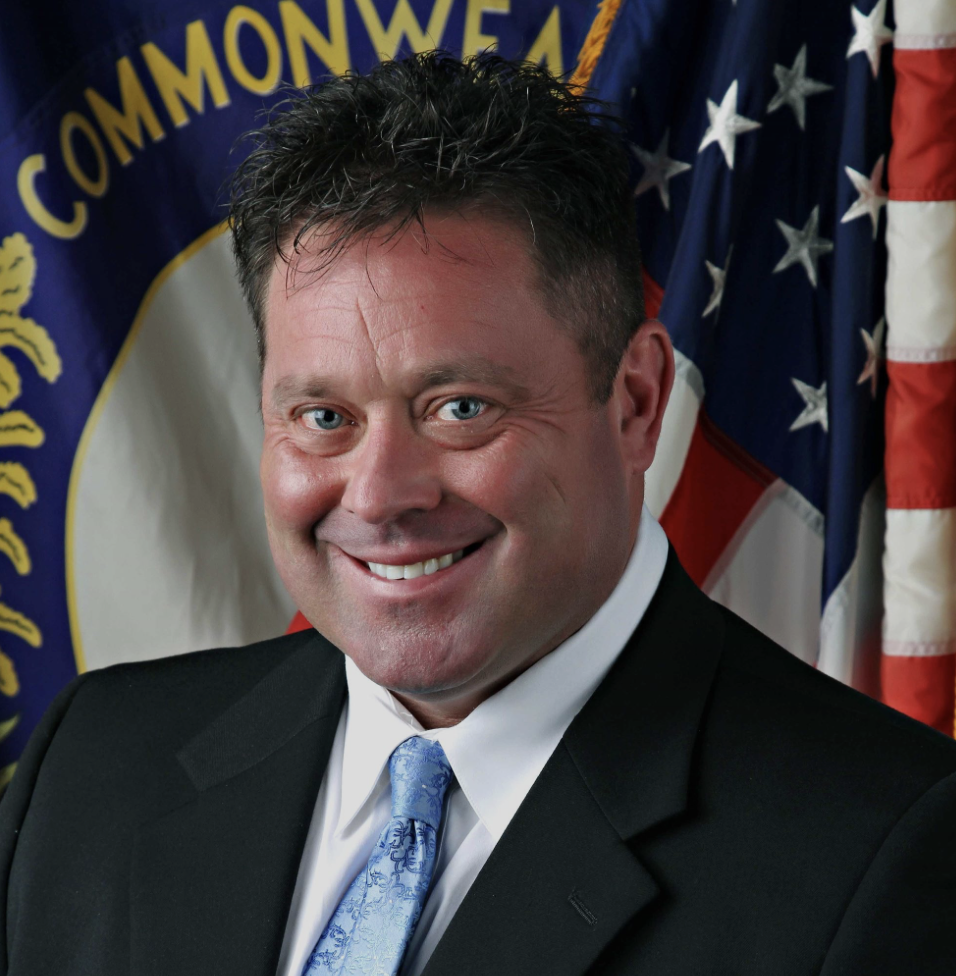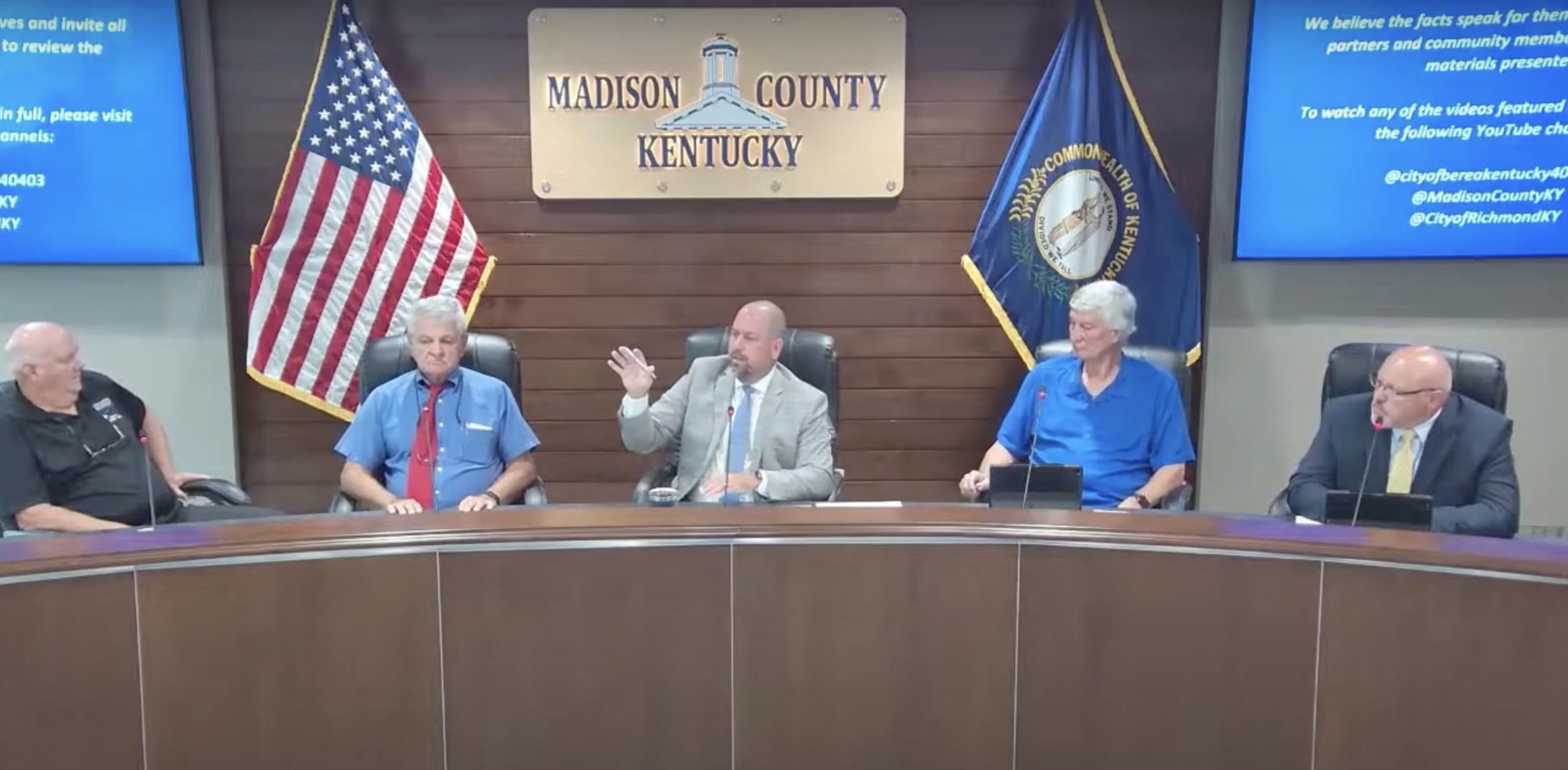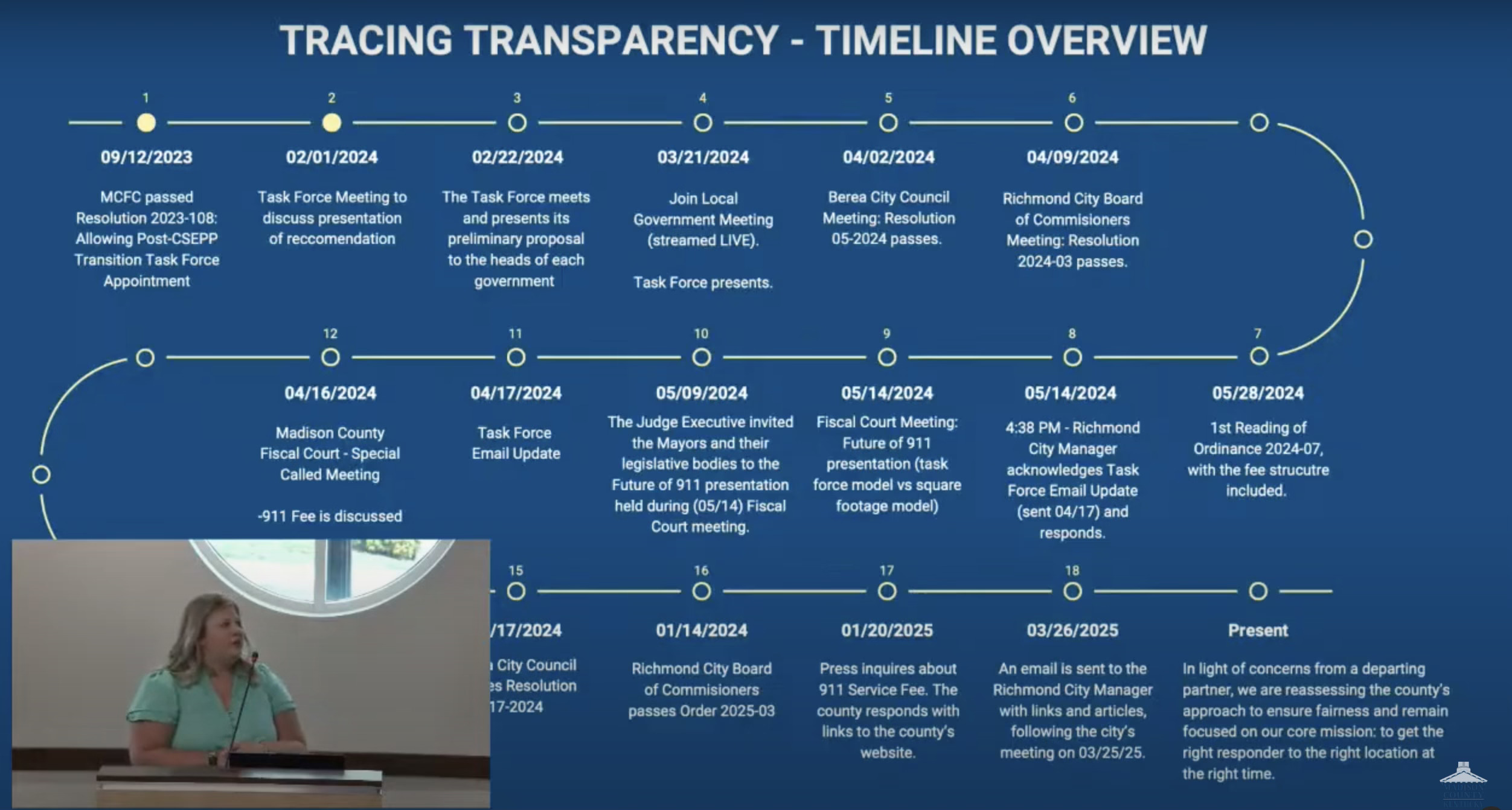Local leaders scramble after Richmond reneges on countywide 911 fee agreement
All previous 911 fee assessments will be null and void

RICHMOND — While suggesting county and other officials acted in bad faith in negotiating fees for emergency services, the Board of Commissioners has voted unanimously to end its participation in what was to have been the upcoming countywide collection of 911 service fees via the county property tax roll.
“We’ve looked at this, we’ve studied it, and there’s a lot of problems with it, there’s things that are wrong, and the manner it was put out,” Commissioner Jim Newby said after the vote, which took place on July 22, during a regularly scheduled meeting.
Blindsided
In the face of Richmond’s accusations that the County acted without transparency, Deputy Judge Executive Jill Williams used a special called Fiscal Court meeting on Tuesday to mount an emphatic defense of the 911 task force and other leadership involved in the negotiations and planning of the new fee arrangement.
Williams narrated a 90 minute-long Powerpoint presentation that included a slide of 911’s history in the county entitled, Tracking Transparency Timeline Overview.
After the meeting, Williams told The Edge that the first she learned of Richmond’s actions the day after the ordinance was passed to end their role in the interlocal fee agreement. “We received an email from the city manager the following day,” she said.
In addition, Berea Mayor Bruce Fraley, who attended the special meeting, told The Edge he had not known Richmond was planning to pull out of the agreement, nor had he been officially informed by anyone in Richmond that leadership there had voted to tank the fee structure.
Footing the tab
Richmond leadership has also voted to pick up the tab for emergency communication services for all Richmondians this fiscal year—a move that could cost the City nearly 2.4 million dollars.
“So, what we’re doing as a city commission, were going to pit [sic] the bill for our citizens of Richmond for this year, put our heads together immediately and try to figure out for the future, and if it’s something in the future, everyone will know, have a heads up, whatever we decide to do,” Newby continued, after the vote. “And you know folks, if that’s not leadership, I don’t know the hell is. And I want to challenge the other two [local] entities out there to step up and be leaders and do the same thing.”

CSEPP ending soon
The interlocal agreement that included the countywide 911 fee collection was put into effect earlier this year by a Richmond City order. Berea and Madison County passed their ordinances to participate in the agreement last year.
The agreement was the culmination of more than two years of negotiations, including bi-weekly meetings of a task force comprised of two delegates from each jurisdiction, charged with finding a way to meet the County’s emergency communication services needs in the face of the impending end to generous federal emergency funding for the County, part of the Chemical Stockpile Emergency Preparedness Plan, or CSEPP.
The money was used to create a state-of-the-art rapid response framework in case of a chemical weapons leak at the Blue Grass Army Depot. Now that the weapons have been decommissioned, the funding will end in September.
Those federal dollars helped bridge the gap in 911 funding left by diminishing landline fee collections. County residents with a landline currently are assessed 42 dollars annually, but there are too few landlines to support the service anymore. The County cannot add 911 fees to cell phones because the state already does that.
Fee confusion
The fee structure previously agreed upon by the three entities was to be based on assessments of a building’s square footage and zoning. When letters went out earlier this summer informing citizens across the County what their fee would be, there was much confusion. Ultimately, more than 6,000 County residents appealed their assessment, according to Madison County Judge Executive Reagan Taylor.
The reason for the confusion, he told The Edge in a sit down interview, primarily had been faulty municipal level zoning data that did not reflect the actual use of the parcel, leading to incorrect criteria applied to the square footage data received from the Property Valuation Administrator’s office.

Meanwhile, at the special called meeting, Taylor told magistrates that, “It saddens me that we are here today,”
Rueing Richmond’s decision further, he said, “Going through resolutions, ordinances, timelines, public meeting videos, meeting minutes of the task force, I cannot see for the life of me how anybody could say they didn’t know what was going on … or that the County changed anything,” Taylor said. “The agreement was we’d all stick together.”
Forensic response
Williams’s forensic treatment in her presentation of the entire two-year process that resulted in the fee’s assessment and placement on County property tax bills, included emails sent to Richmond officials about the negotiations, signed ordinances about the interlocal agreement unanimously passed by Richmond’s Commissioners, and video clips of various meetings, such as one from a Richmond Commission meeting on April 9, 2024, where Mayor Robert Blythe affirms to the Board that the fees will be added to the October 2025 County property tax bill.
“Nothing was done behind closed doors,” Williams said.

‘Do they understand what they signed?’
However, at the July 22 meeting where Richmond pulled out of the agreement, Blythe said the last he’d been informed was that there would be a flat monthly fee of 75 dollars per door.
“All I know is that by the time we got back here, and were forced to deal with this matter, it was not what we agreed to. That’s all I can say. I don’t know where it fell apart,” Blythe said.
Under the interlocal arrangement, the average cost to single family home owners would have averaged about 32 dollars annually, as previously reported.
Yet, another video clip from March 25, 2025 featured Richmond City Manager Rob Minerich responding to requests from Commissioner Mike Brewer that “the formula used for the 911 [fee]” be posted on the city website, and that Minerich send him a copy of the formula, to which Minerich replied that he’d already sent them, but could re-send them.
Per Brewer’s request, Williams provided evidence that Minerich was sent an email that refers explicitly to the square footage formula—not a flat fee. The email also included links to articles about the formula reported by various local media.
Minerich was one of Richmond’s delegates to the 911 task force. The Edge left multiple messages for Minerich and also sent multiple emails asking him for comment on whether he personally was unaware of the fee formula, to no effect. Minerich has said that as a member of the task force that initially passed the fee structure, he could “not say enough” to commend his colleagues from the other two jurisdictions.
Williams also pointed out that Brewer’s request had come two months after the Commissioners unanimously had passed Richmond City Ordinance 2025-03, which explicitly references the agreed upon fee structure.
This point provoked Magistrate Stephen Lochmueller.
“I am confused as to why they didn’t understand what they were voting on,” he said. “It’s beyond me that they unanimously vote something forward, and then just recently they do what they’ve done,” he said.
“There were a lot of decision makers and elected officials who voted a lot of times and had a lot of conversations to get to where we are. It wasn’t just the five members of this Fiscal Court,” Williams concluded.

Going forward
Williams explained that the previous fee formula will be null and void after the second reading of an ordinance read out at the special called meeting that dissolves the County’s participation in the original fee structure agreement. That’s because Richmond has, of all three jurisdictions, the highest usage of 911 services at 56 percent, and was to have contributed about twice as much of the fees than the County and Berea, because Richmond has the highest concentration of commercial and multi-family structures that were to have pulled in a greater percentage of the fees.
Taylor said that while he honors Richmond’s decision, it leaves the County and Berea to reconfigure how to assess their respective fees, and to do so before CSEPP runs out in two months. Taylor said the County will need just over 1 million dollars to cover its portion of the entire 4.28 million dollar emergency services budget. Berea will need 873,000 dollars for its portion.
Possible alternatives include using the previous square footage formula, but reapplied to properties outside the City of Richmond. Other alternatives are to apply a fee according to the water usage of a property, or to assess according to other utilities.
Water- and power-based fees were already rejected by the task force on the grounds of their being too complicated to manage across all the various water and utilities companies active in the County. In a sidelines interview at the Fiscal Court meeting, the County’s 911 director, Wendy Lynch told The Edge that the task force would figure out a way to coordinate it if that is what is necessary.
Taylor said a fee applied to water usage would be easier for citizens to understand compared to the square footage formula.
Lochmueller expressed his hopes Berea continues to work with the County moving forward, and Williams indicated the County and Berea have been communicating to that end.
The current plan, according to Williams, is to amend the interlocal agreement to state that each jurisdiction will be responsible for their portion of the entire 4.28 million dollars necessary to run the emergency communication services, while the agreement to share use of the services remains the same.
Taylor said his priority now is to communicate as quickly as possible with citizens so they are not surprised by the changes.
Ed. note: The Edge reporter, Whitney McKnight, attended the special called Fiscal Court meeting, but did not have a camera on hand. Thus, the screenshots and other government shots. Thank you for understanding.
The Edge is Berea’s source for deeply reported news and information. Become a paid subscriber now and support your hometown online paper.
1:20 pm, July 30, 2025: This story has been updated with corrections to the cost of the 911 services, the timing of the null and void, and some terminology. Also, that the fee is annual not monthly.




